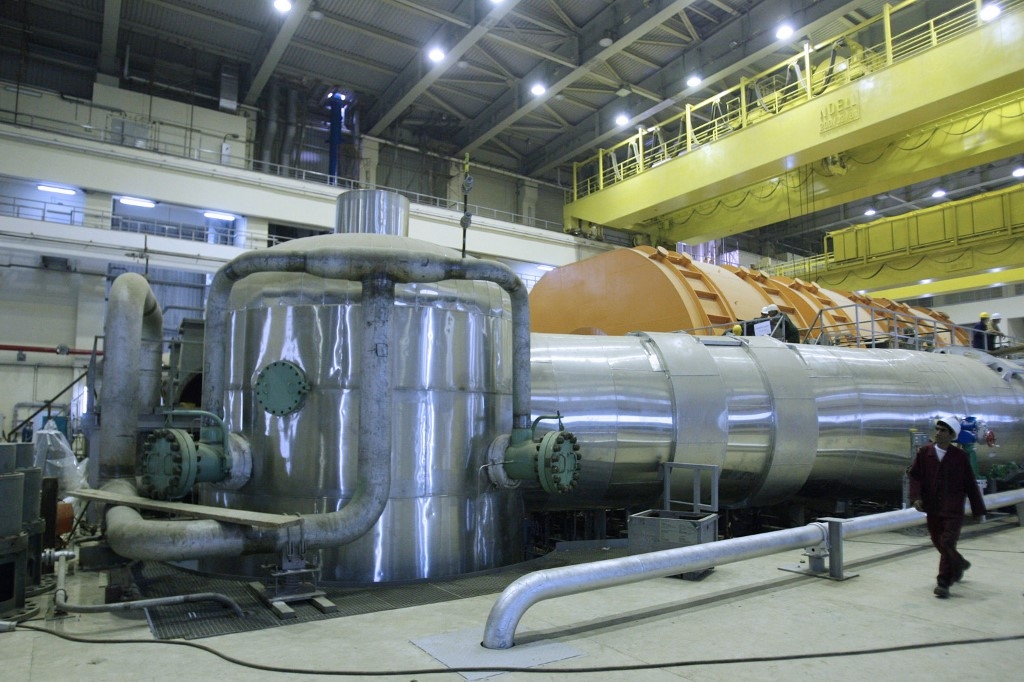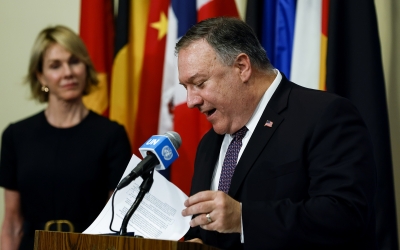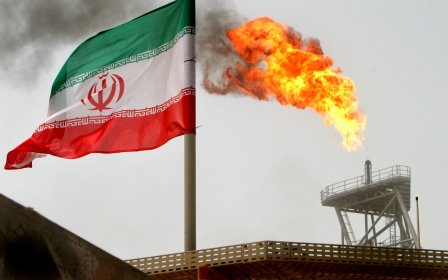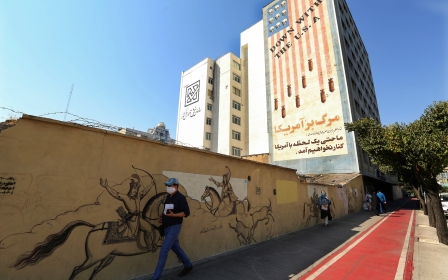Iran will not renegotiate nuclear deal if Biden wins US presidency, Zarif says

Iranian Foreign Minister Mohammad Javad Zarif said on Monday that Tehran has no plans of renegotiating the 2015 nuclear deal, stressing that Washington must return to the accord "without condition".
Speaking to the Council on Foreign Relations in a virtual interview, Zarif discussed a broad range of topics including the prospect of reviving the nucler agreement that Donald Trump nixed in 2008.
Asked how Iran would react if Joe Biden wins the US presidency in the upcoming November election, Zarif said Tehran is concerned with Washington's policies, not internal US politics.
Biden, who served as Barack Obama's vice president when the deal was signed in 2015, had vowed to re-adopt the accord if Iran returns to full complience with its regulations.
Zarif said because it was the US, not Iran, that violated the agreement, the burden is on Washington to restore trust with Tehran. He added that the US needs to undo the wrongs committed against the Islamic Republic before it could return to the deal.
"The United States first must come clean, must get its act together, must come back to be a lawful member of the international community, start implementing its obligations, and then talk about the rest of the deal," he said.
The foreign minister suggested that Trump left the deal because he disliked Obama, adding that what matters to Tehran is the behaviour of the US government, not the politics in Washington.
"It's immaterial for us who sits in the White House. For us, what is important is how they behave, and the United States has behaved extremely, irresponsibly, dangerously in the international community," Zarif said.
"I think it is the United States that has to show that it's committed to this deal that it will not violate it again, that it will not make demands outside the scope of the deal, that it will compensate Iran for the damages," Zarif said, saying the damages caused by US sanctions had numbers in the billions of dollars.
Iran will not renegotiate nuclear deal
Under the deal, officially known as the Joint Comprehensive Plan of Action, Iran agreed to curb its nuclear programme in exchange for the lifting of international sanctions against its economy.
Since the Trump administration unilaterally pulled the US from the accord in May 2018, it has reimposed sanctions on various sectors of the Iranian economy, including oil exports.
On Saturday, the US administration announced the "snapback" of all UN sanctions due to Tehran's supposed non-compliance with the agreement, a move which virtually every other member of the Security Council rejects.
'The United States did try its best to get a good deal. And the previous administration, where candidate Biden was the vice president, believed it was a good deal. Now, we're not going to negotiate a deal'
- Mohammad Javad Zarif, Iran's foreign minister
Two permanent council members - France and the UK - issued a joint statement, along with non-permanent member Germany, saying that Pompeo's "purported notification" was "incapable of having any legal effect".
Meanwhile, Iran has slowly been reducing its compliance with restrictions on its production of enriched uranium and has substantially boosted its stockpiles.
Biden has said that a mutual return to the deal would be a "starting point for follow-on negotiations".
Zarif said while Iran is not opposed to talks, it will not "renegotiate what we already negotiated".
"The damages that were inflicted upon Iran were wrong. They have to be corrected. That's without condition," Zarif said.
"Nobody is in a position to put conditions for making good on their own promises.
"The United States did try its best to get a good deal. And the previous administration, where candidate Biden was the vice president, believed it was a good deal. Now, we're not going to negotiate a deal."
Iran has always denied that it has ever sought to develop a nuclear weapon, insisting that its programmes have been peaceful.
Middle East Eye delivers independent and unrivalled coverage and analysis of the Middle East, North Africa and beyond. To learn more about republishing this content and the associated fees, please fill out this form. More about MEE can be found here.





